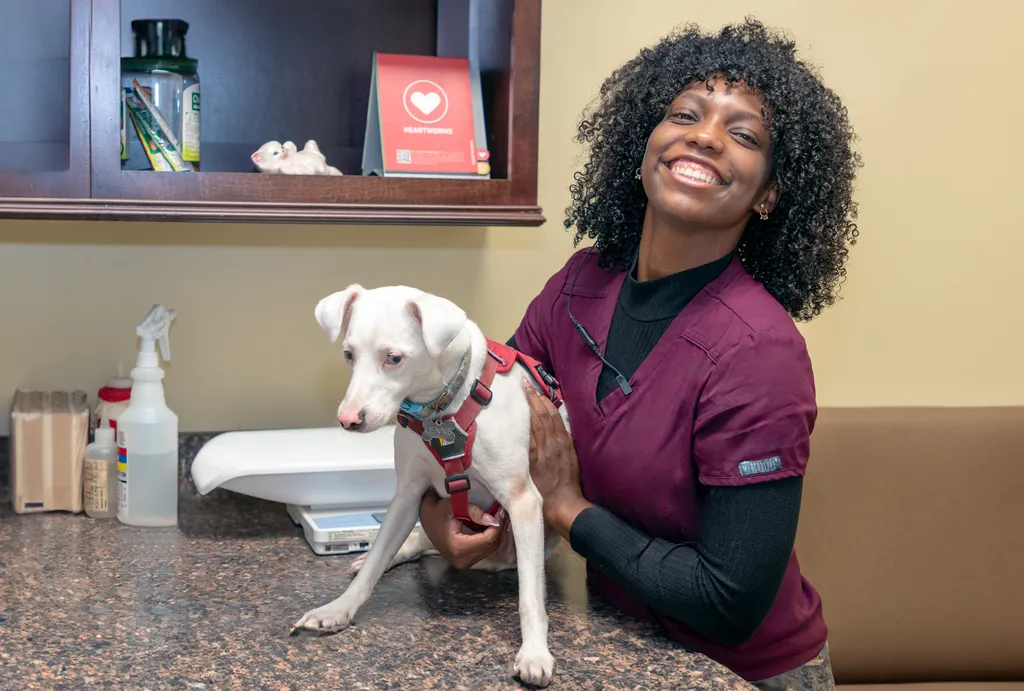Our coastal climate is just one reason to love the Houston area, but it also gives rise to the prevalence of awful flying, buzzing pests. Beyond their irritating bites, mosquitoes are responsible for the spread of some serious diseases. Zika, malaria, and West Nile Virus (to name a few) are terrible for humans, but it’s heartworm prevention that we’re most concerned with for our pets.
The Difference Matters
We recommend a monthly, year-round preventive medication for cats and dogs. Without this, dogs are almost 100% likely to contract heartworm, making annual heartworm testing critical. The disease is treatable for canines and typically involves diagnostic testing (such as x-rays and bloodwork), injections, and hospitalization.
Cats, on the other hand, are impossible to treat. For us, that’s just one more reason to stay on top of heartworm prevention.
Natural Hosts
Dogs are considered natural hosts for heartworm, but cats and other mammals are equally vulnerable. Via their bite, infected mosquitoes can deposit small worms into your pet’s bloodstream. These worms develop into larvae in the skin and muscles. The larvae will eventually take up residence in the heart and lungs, growing into adult worms over time.
Gross Factor
The life cycle of a heartworm explains why we advocate for year-round heartworm prevention. It takes about 6 months for a heartworm to mature, so taking your pet off medication in the “dormant” seasons (fall and winter) still allows the worms to incubate. However, if preventives are in place, you aren’t gambling with your pet’s future health, wellness, and longevity.
Signs of Heartworm Disease
Visible signs of heartworm are often mistaken for asthma or allergic bronchitis, making it easy to overlook the beginning stages of the disease. Heartworm testing eliminates any doubt. With a positive diagnosis, you may observe:
- Incessant coughing fits
- Asthma-like attacks
- Seizures
- Vomiting
- Weight loss
- Decreased mobility
- Collapse
- Sudden death
Heartworms can lead to serious pet emergencies, such as respiratory failure, pulmonary edema, and heart failure. Large worms can be surgically removed, but with an eye on heartworm prevention, your pet won’t have to experience that.
Heartworm Prevention
Unfortunately, there isn’t a vaccine for heartworm disease, making prevention and diagnostics our go-to methods. If preventive medication is administered to a pet who unknowingly has the disease, a shock-like reaction can ensue and may lead to death.
Monthly oral or topical products will stop any larvae from developing if an infected mosquito bites your pet.
The bottom line is that heartworm disease is terrible, but year-round heartworm prevention eliminates the risk. If our team can be of assistance, please give us a call.



